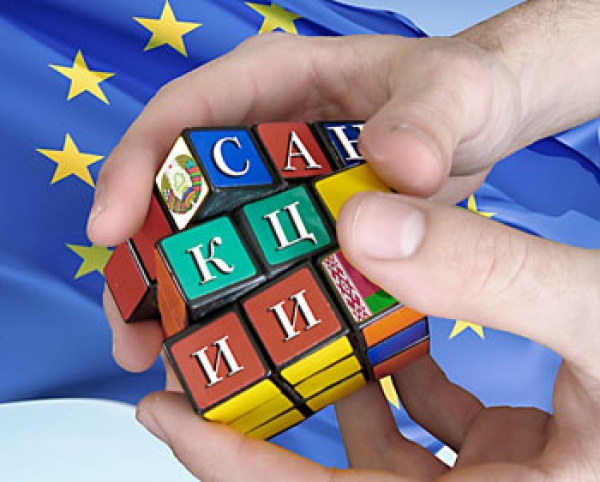As expected, the meeting of Russian President Vladimir Putin's meeting with German Chancellor Angela Merkel in Sochi did not lead to a breakthrough in cold Russian-German relations. This task, probably, was not raised by the two leaders this time: they have too many years between them to cherish any illusions. Angela Merkel, first of all, was interested in maintaining a dialogue with the Russian side on topical issues on the eve of the G20 summit in Hamburg. And in the end she enlisted the Russian support. It was a non-binding, but endearing diplomatic gesture of the Kremlin, showing its friendliness.
President Vladimir Putin, inviting Merkel in Sochi, wanted to demonstrate his constructive attitude, and the German chancellor noted it during a joint press conference. Apart from that, Russia and Germany confirmed the already well-known positions - first of all, on Ukraine and human rights issues. It is symbolic that after the departure of Merkel from Sochi, Vladimir Putin held a telephone conversation with Donald Trump, during which an agreement was reached on their first face-to-face meeting on the sidelines of the G20 summit in German Hamburg. It is not known whether Angela Merkel played a role in organizing the planned meeting, however, given the recent intensified US-German contacts, it cannot be ruled out.
Putin and Merkel in Sochi did not discuss the lifting of sanctions in detail, but it is obvious that this topic is constantly invisibly present at any negotiations between Berlin and Moscow. Can Russia seriously count on the easing of EU sanctions in the foreseeable future? As observers of Tagesschau reasonably noted, the United States is playing the important, if not decisive, role in this issue along with the Germans. According to the political expert on America, employee of one of the leading German thinktanks DGAP, Josef Braml, the Trump administration had not yet said its last word on this issue. "Employees of Exxon Mobil, Rex Tillerson's former firm, are working behind the scenes to ensure that sanctions are weakened," Braml told the German DLF. The expert believes that as soon as the internal political pressure on President Donald Trump weakens because of the possible Russian influence on the presidential elections in the US, movement may begin to ease sanctions. According to the analyst, the goal of Trump's government in the medium term is closer connection of Moscow to Washington. "Because of sanctions, Russia was practically thrown into the arms of China, while China for American geostrategists is a threat, which must be suppressed. That it why the US needs Russia," Braml believes.

However, there are serious forces in Germany as well interested in weakening the anti-Russian sanctions. Handelsblatt writes that representatives of German business regularly show their interest in easing the sanctions regime: businessmen are reasonably afraid that Chinese companies will occupy a vacant niche in the Russian market. The idea of a partial or complete lifting of sanctions is supported by influential groups in the Social Democratic Party, the Left Party, the far-right from the Alternative for Germany, and many supporters of the Christian Social Union, which is part of the same alliance with the CDU headed by Angela Merkel. Finally, the liberal 'Free Democratic Party', which traditionally represents the interests of Germany's rich business stratum and advocates maximum limitation of state intervention in the economy, are far from being unanimous in their opinion on the expediency of maintaining sanctions against Russia. The most rigid opponents of the abolition of anti-Russian sanctions in Germany are the transatlanticists, which are widely represented in the ruling CDU, who, by the way, still did not find a foothold in the new system of coordinates formed in international politics after the election of Donald Trump.
Thus, the actualization of the issue of the weakening or the complete abolition of sanctions imposed by the EU against Russia depends on several factors, among which the US foreign policy under Donald Trump is dominant, and the external and internal political situation in Germany as a result of the autumn elections to the Bundestag is of secondary importance. Moreover, as the practice of the first 100 days of Trump's presidency shows, it is difficult to forecast the foreign policy of the new Executive Office of the President due to the lack of experience of the ruling team and a high degree of polarization of society, because of which foreign policy actions have become excessively vulnerable to the influence of internal political contradictions.
We also should not remove from the context the immediate cause of sanctions - the situation in Ukraine and the lack of meaningful progress in implementing the Minsk agreements. Moscow understands that calming the situation and achieving real progress towards peace in the eastern Ukraine will inevitably strengthen the positions of the forces, advocating the lifting of sanctions against Russia, in Europe and the US. In this sense, the efforts of Russian diplomacy are now aimed at positioning Russia as a constructive partner that exerts the maximum possible influence on the unrecognized DPR and the LPR, while simultaneously representing Ukraine as a party, which does not allow the implementation of Minsk agreements. Such a policy is aimed at waiting for the moment when Ukraine will become an unreasonably expensive "ballast" for the EU and the US, and the potential and practical advantages of cooperation with Russia will outweigh the Western alliance with pro-European Ukraine. However, it is an open question how long the expectation of this moment may last, and whether it will come at all.






